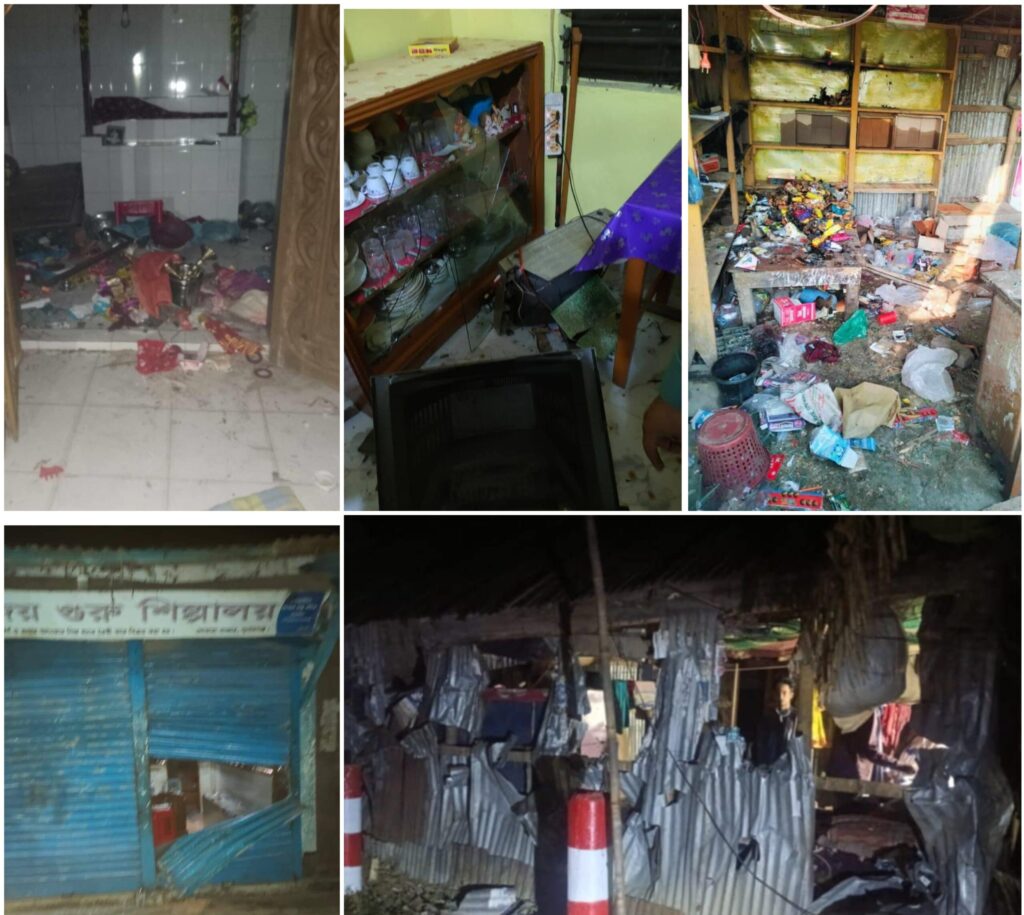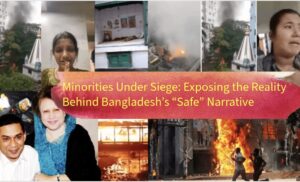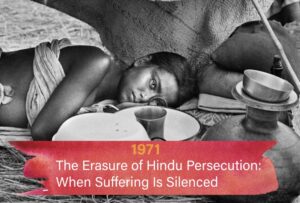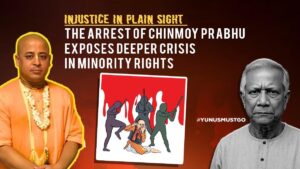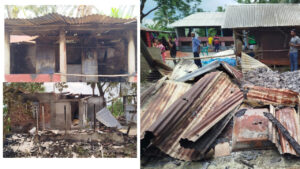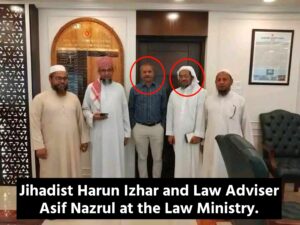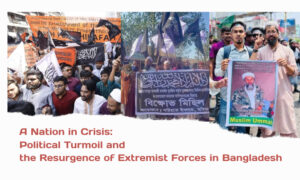In a stark reminder of the fragility of communal harmony, several Hindu homes, shops, and places of worship in Sunamganj’s Dowarabazar were vandalised and looted on the night of December 03.
The unrest, reportedly triggered following an alleged “offensive” Facebook post made by a local youth, underscores the precarious state of minority rights and security in Bangladesh.
The violence, which began in the evening and lasted until midnight. The assailants, believed to be part of a larger network of Islamist extremists, vandalised a Hindu Mandir, destroying murtis and sacred objects. Authorities have since detained the youth responsible for the contentious social media post. However, despite the presence of armed forces, there are reports that the military is doing little to quell the violence or protect the Hindu community. Instead, the government seems to have tacitly allowed these attacks to continue, which has led to widespread fear and anger among Bangladesh’s Hindu population. Eyewitness accounts from local Hindu leaders describe the attacks as widespread and deliberate.
Khokan Roy, General Secretary of the Dowarabazar Loknath Mandir Management Committee said, “At least 30 Hindu community houses were vandalised, and over 100 shops of the community in the local market, including gold shops, were ransacked.” “The fanatics attacked the Loknath Temple sustained damages amounting to Tk20 lakh.”
Further allegations suggest that the attackers specifically targeted the residence and private temple of Gaur Das, a leader of the Bangladesh Hindu Buddhist Christian Unity Council.
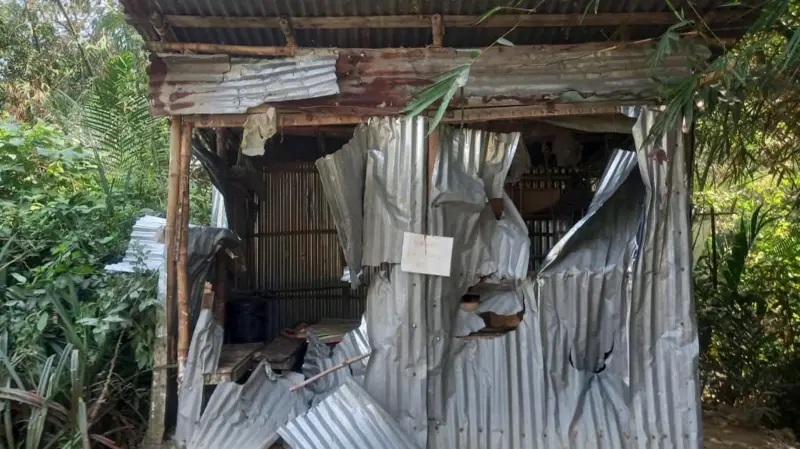
However, the local administration disputes these figures, characterising the event as less severe. “A few houses and shops were affected. The situation is now stable,” remarked Dowarabazar Upazila Nirbahi Officer (UNO) Meher Nigar Tonu.
This incident comes at a time when the Bangladesh interim government faces heightened scrutiny for its perceived inability to safeguard minority communities. It follows a string of similar incidents, including the controversial arrest of a Hindu priest at Dhaka airport, which prompted the Indian Ministry of External Affairs to urge Bangladesh to reinforce protections for its minorities.
While Bangladesh has consistently reiterated its commitment to minority rights, such occurrences highlight a troubling disconnect between policy assurances and on-ground realities.
Bangladesh has recently witnessed violent attacks on its minority Hindu community, especially in the wake of political instability. Islamist extremist groups have targeted Hindu homes, businesses, and places of worship. In August 2024, amid a power vacuum following Prime Minister Sheikh Hasina’s ouster, Muslim fanatics attacked Hindu houses.
This violence is part of a broader pattern of discrimination against minorities, particularly Hindus, who have faced systemic persecution for years. Human rights organisations and international bodies have condemned the violence and urged the Bangladeshi government to take immediate action to protect its minority communities. However, with the complicity of local law enforcement and the military, and the growing influence of extremist groups, it remains to be seen whether any meaningful steps will be taken.
In the face of growing hostility, Hindu communities both in Bangladesh and across the world are calling for stronger diplomatic intervention, urging international human rights organisations to take a firm stand against the ongoing persecution of Hindus in Bangladesh.

